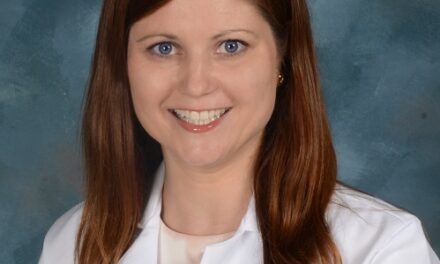.jpg) The challenges that healthcare systems have with maintaining an effective nursing workforce have changed. Patients are much more acutely ill, the technology required to care for them is increasingly complex, and consumerism has heightened customer expectations for care. At the same time, many of the highly skilled and knowledgeable nurses who can meet these demands are retiring faster than ever before. These factors have created quite a dilemma in healthcare. To meet this challenge, Memorial Healthcare System has given a booster shot to its nurse graduate training by investing in a formalized and accredited nurse residency program so that its newly hired novice nurses can become competent and effective nurses in a more reliable and uniform fashion across all six hospitals.
The challenges that healthcare systems have with maintaining an effective nursing workforce have changed. Patients are much more acutely ill, the technology required to care for them is increasingly complex, and consumerism has heightened customer expectations for care. At the same time, many of the highly skilled and knowledgeable nurses who can meet these demands are retiring faster than ever before. These factors have created quite a dilemma in healthcare. To meet this challenge, Memorial Healthcare System has given a booster shot to its nurse graduate training by investing in a formalized and accredited nurse residency program so that its newly hired novice nurses can become competent and effective nurses in a more reliable and uniform fashion across all six hospitals.
As with many initiatives undertaken in healthcare that require a significant monetary input, its value to the organization is often scrutinized. As anticipated, however, the nurse residency program in the Memorial Healthcare System is already yielding a favorable return on investment. Just 15 months after its implementation, 440 newly graduated R.N.s have moved through the program, and the results, as evidenced in the benchmarked data, are exceeding all expectations.
Critical to our ability to predict and address new nurse engagement, retention, contribution to MHS’s high patient care expectations, and ability to achieve nursing sensitive outcomes, is a keen understanding of and ability to visualize our nurse residents’ transition from student to nursing professional through their eyes. The Casey-Fink Graduate Nurse Experience Scale is the tool used to measure the residents’ perceptions of their ability to perform key components of professional practice. These components are organized and evaluated in five key domains: stress, support, organizing/prioritizing, communication/leadership, and professional satisfaction. In all five domains Memorial nurse residents are exceeding national benchmarks.

In particular, while first year nurse retention rates – one of the most significant contributors to organizational success – remain at a dismal 81.3% nationally, Memorial Nurse Residency graduates are far exceeding the national rate, remaining in their roles at an outstanding rate of 96%.
Why is the program working so well? We asked our graduates: “I’m so thankful that Memorial has a program that is helping me achieve my dream – being able to change someone’s life – and the residency has given me the skills and confidence to do so.” “The staff knows how to help me transition from being a student to a real nurse and I now know that when I enter my second year, I’ll be able to think through critical situations and make the right decisions.” “As a new nurse, this job is extremely challenging; however, my preceptor helps build my confidence and the reflection seminars teach me how to work through frightening situations. I can be the nurse I want to be.”
Clearly, the monthly seminars designed to increase critical thinking and clinical skills are effectively promoting engagement, resilience, and joy in this new nursing workforce. Although different from the way nurses were educated in the past, the program’s group cohesion model, in which new nurses learn to work through patient care challenges with and from each other, is effectively enhancing friendship development and the honing of problem-solving skills that will influence the nurses’ performance and career satisfaction for many years ahead.
While many healthcare system leaders consider the experienced nurse retirements a crisis, with a clear plan for recruitment that includes a formal nurse residency program, healthcare organizations can instead use this challenge to create opportunity. Educating and preparing our newly graduated nurses to practice according to evidence-based guidelines and arming them with problem-solving skills that enhance resilience might even prepare a workforce that can more reliably partner with other healthcare team members to produce outcomes that patients deserve and that the organization needs to survive and thrive. In doing so, Memorial looks forward to a very bright future!
Post Views: 764
.jpg) The challenges that healthcare systems have with maintaining an effective nursing workforce have changed. Patients are much more acutely ill, the technology required to care for them is increasingly complex, and consumerism has heightened customer expectations for care. At the same time, many of the highly skilled and knowledgeable nurses who can meet these demands are retiring faster than ever before. These factors have created quite a dilemma in healthcare. To meet this challenge, Memorial Healthcare System has given a booster shot to its nurse graduate training by investing in a formalized and accredited nurse residency program so that its newly hired novice nurses can become competent and effective nurses in a more reliable and uniform fashion across all six hospitals.
The challenges that healthcare systems have with maintaining an effective nursing workforce have changed. Patients are much more acutely ill, the technology required to care for them is increasingly complex, and consumerism has heightened customer expectations for care. At the same time, many of the highly skilled and knowledgeable nurses who can meet these demands are retiring faster than ever before. These factors have created quite a dilemma in healthcare. To meet this challenge, Memorial Healthcare System has given a booster shot to its nurse graduate training by investing in a formalized and accredited nurse residency program so that its newly hired novice nurses can become competent and effective nurses in a more reliable and uniform fashion across all six hospitals. In particular, while first year nurse retention rates – one of the most significant contributors to organizational success – remain at a dismal 81.3% nationally, Memorial Nurse Residency graduates are far exceeding the national rate, remaining in their roles at an outstanding rate of 96%.
In particular, while first year nurse retention rates – one of the most significant contributors to organizational success – remain at a dismal 81.3% nationally, Memorial Nurse Residency graduates are far exceeding the national rate, remaining in their roles at an outstanding rate of 96%.


























